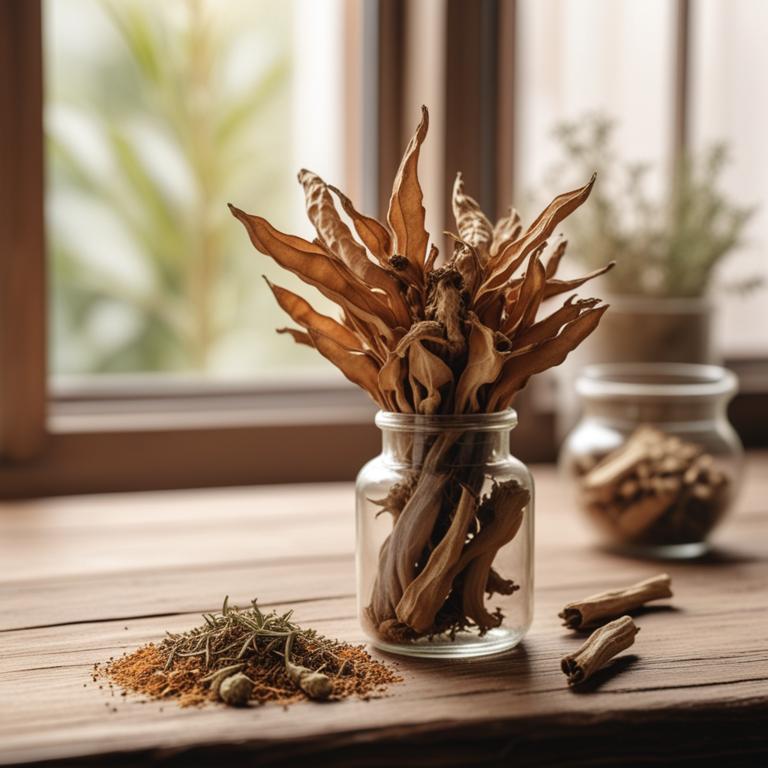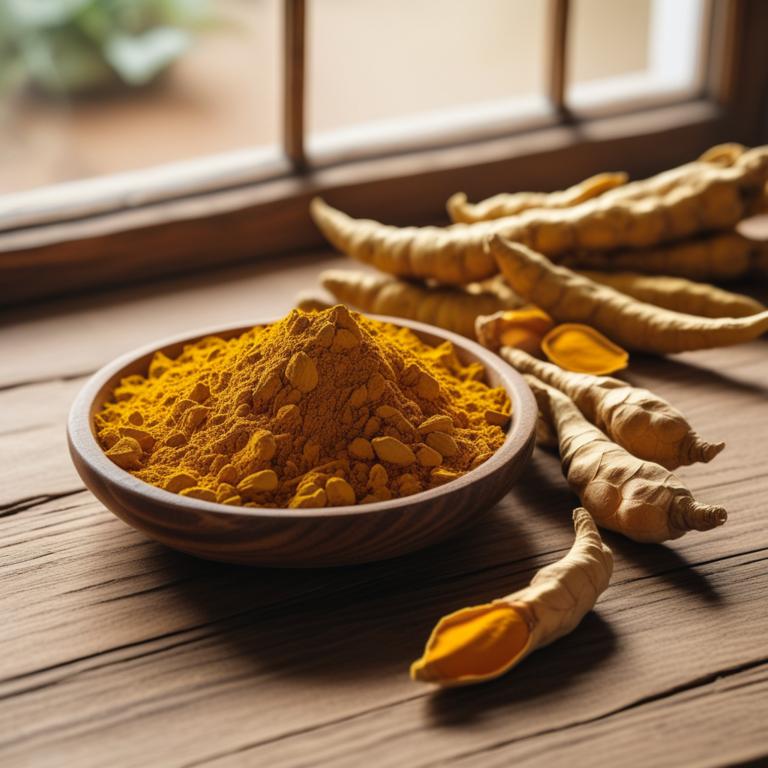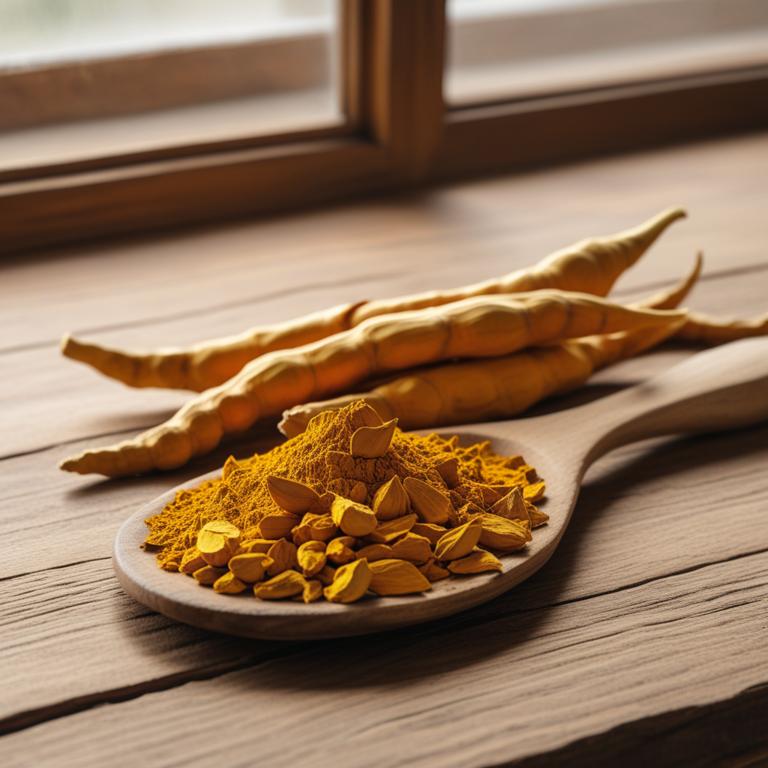Updated: Dec 1, 2024
Jaw Pain: Causes, Herbal Remedies, and Homeopathic Preparations

Jaw pain can be a real nuisance, making everyday activities like eating, talking, and even smiling a chore.
It can make you feel irritable and affect your mood, not to mention the impact it has on your physical well-being. Jaw pain, also known as temporomandibular joint (TMJ) disorder, is often caused by misalignment of the jaw joint, teeth grinding, or clenching, which can lead to inflammation and pain in the jaw, face, and ears. Some people may experience jaw pain due to stress, anxiety, or emotional issues, while others may have it due to a bite problem or a facial injury. Whatever the cause, herbal remedies can provide relief from the discomfort.
Herbs like ginger, turmeric, and willow bark have anti-inflammatory properties that can help reduce swelling and ease pain in the jaw. Feverfew and meadowsweet are also known to have pain-relieving properties, while lavender and chamomile can help calm the mind and body, reducing stress and anxiety that may contribute to jaw pain. To use these herbs for jaw pain relief, you can try making a warm tea by steeping dried ginger, turmeric, or feverfew in hot water. Willow bark tea can also be made by infusing the bark in hot water. You can also try applying a topical cream or ointment made from these herbs to the affected area.
Some people also find relief by taking herbal supplements, like ginger or turmeric capsules, after consulting with a healthcare professional.
Table of Contents
What triggers jaw pain?
The main causes of jaw pain are often related to the way we use our teeth and the muscles around our jaw.
One common cause is TMJ disorder, which occurs when the temporomandibular joint that connects the jawbone to the skull becomes misaligned or inflamed. This can be due to a variety of factors, including a jaw injury, teeth grinding or clenching, or even a misaligned bite. When the joint is not functioning properly, it can cause pain and stiffness in the jaw, face, and head. Another cause of jaw pain is Bruxism, which is the habit of grinding or clenching the teeth, especially at night. This can put a lot of pressure on the jaw and surrounding muscles, leading to pain and discomfort. Bruxism is often caused by stress, anxiety, or a misaligned bite, and can be treated with a mouth guard or other oral devices.
Some people experience jaw pain due to migraines, a type of headache disorder. Migraines can cause pain and sensitivity in the face and jaw, and can even cause the jaw to lock in place. The exact cause of migraines is not fully understood, but it is thought to involve a combination of genetic and environmental factors. Finally, sinusitis, an inflammation of the sinuses, can also cause jaw pain. When the sinuses become inflamed, it can cause pressure and pain in the face, including the jaw. This is often accompanied by other symptoms such as congestion, runny nose, and coughing.
Sinusitis can be caused by a variety of factors, including allergies, colds, or respiratory infections.
What are the benefits of employing herbs to treat jaw pain?
Using herbs for jaw pain can be really helpful.
One of the main benefits is that they often work quickly to reduce discomfort and tension in the jaw and face. These herbs can also help to reduce inflammation and swelling, which can make the pain worse.
Some herbs have natural anti-inflammatory properties that can help to calm down the pain and make it more manageable. Additionally, they can help to relax the muscles in the jaw and neck, which can become tense and lead to pain. Some herbs can also help to reduce stress and anxiety, which can contribute to jaw pain.
By reducing stress and promoting relaxation, these herbs can help to break the cycle of pain and tension.
What are the essential medicinal herbs for treating jaw pain?

Herbs can be a great help when it comes to jaw pain.
Zingiber officinale, also known as ginger, has anti-inflammatory properties that can reduce swelling and ease pain in the jaw. This is because ginger contains compounds that block the production of prostaglandins, which are hormone-like substances that cause pain and inflammation. Echinacea purpurea, a plant commonly used to boost the immune system, also has anti-inflammatory properties that can help reduce jaw pain. It has been shown to reduce the production of inflammatory compounds in the body, which can contribute to jaw pain.
Salvia officinalis, or sage, is another herb that can help with jaw pain. It has anti-inflammatory and antibacterial properties that can reduce swelling and fight off infections that may be causing the pain. Cinchona officinalis, also known as the cinchona tree, is a natural source of quinine, a compound that has been used to treat various types of pain, including jaw pain. The quinine in cinchona can help reduce pain and inflammation in the jaw. Camellia sinensis, or green tea, contains an amino acid called L-theanine, which can help relax the muscles in the jaw and reduce pain.
It also has anti-inflammatory properties that can reduce swelling and ease pain in the jaw.
What are the most commonly prescribed herbal preparations for jaw pain?

Herbal preparations can be a great way to relieve jaw pain.
A tincture is a concentrated liquid that you take by mouth, made by mixing herbs with a solvent like alcohol or glycerin. It's good for jaw pain because the active ingredients in the herbs are quickly absorbed into your bloodstream, providing fast relief. A decoction is a liquid made by boiling herbs in water. It's good for jaw pain because it's easy to make at home and can be taken orally or applied topically. The heat from boiling helps release the active ingredients from the herbs, making it effective for relieving pain and inflammation. Herbal capsules are another form of herbal preparation that can help with jaw pain. They're made by filling gelatin or vegetable capsules with dried or powdered herbs.
They're good for jaw pain because they're easy to swallow and provide a consistent dose of the active ingredients. An infusion is a liquid made by steeping herbs in hot water. It's good for jaw pain because it's easy to make and can be taken orally or applied topically. The steeping process helps release the active ingredients from the herbs, making it effective for relieving pain and inflammation. A salve is a topical preparation made by mixing herbs with a fat or oil. It's good for jaw pain because it provides localized relief, reducing inflammation and pain in the affected area. You can apply it directly to the jaw or massage it in to get the most benefit. When choosing an herbal preparation for jaw pain, consider the type of herb and the form of the preparation that best suits your needs.
Some herbs, like willow bark and ginger, are commonly used to relieve pain and inflammation, while others, like lavender and chamomile, are used to calm and soothe the body.
Additional Resources:
What herbs could potentially worsen jaw pain in individuals?
If you're experiencing jaw pain, it's best to steer clear of some herbs that could make things worse.
Glycyrrhiza glabra, commonly known as licorice root, contains a compound that can cause your body to hold onto salt, leading to water retention and swelling in the jaw, which can worsen jaw pain. Rosmarinus officinalis, or rosemary, can be a problem if you have a condition called temporomandibular joint (TMJ) disorder, which affects the joint that connects the jawbone to the skull. Rosemary can cause your muscles to tighten up, putting extra pressure on the joint and making your jaw pain even more uncomfortable. Ginkgo biloba, often used to improve memory and circulation, can also be a concern for people with jaw pain.
The herb can cause blood vessels to dilate, which may increase blood flow to the jaw area, leading to more pain and discomfort. Lavandula angustifolia, or lavender, might seem like a calming herb, but it can actually make jaw pain worse if you have sensitive teeth or gums. The essential oils in lavender can be irritating to these areas, causing more pain and sensitivity. Thymus vulgaris, or thyme, can be problematic if you have gum disease or other oral health issues.
The herb's antibacterial properties can be too harsh for sensitive gums, making your jaw pain even more unbearable.
FAQ
Are there any specific herbs that can prevent jaw pain?
Ginger is often used to ease jaw pain and inflammation.
It has anti-inflammatory properties that may help reduce swelling and discomfort. Chamomile is another herb that can help relax the jaw muscles, reducing tension and pain.
These herbs are sometimes used to alleviate jaw pain caused by TMJ disorders or clenching.
Is it safe to use herbal remedies for jaw pain during pregnancy?
It's best to be cautious with herbal remedies during pregnancy.
Some herbs can affect the baby's growth or cause other problems. For example, willow bark contains salicylic acid, which is similar to aspirin and shouldn't be taken without careful consideration.
Always check the ingredients and talk to someone you trust before using any herbal remedy.
Are there any herbs that can reduce the frequency of jaw pain?
Some herbs may help reduce jaw pain frequency.
Ginger, for example, has anti-inflammatory properties that could ease tension in the jaw. Peppermint oil can also relax the muscles and calm the mind, which may help alleviate jaw pain.
Additionally, chamomile tea has a soothing effect that could help calm the body and reduce stress.
Can i combine different herbal remedies for jaw pain?
You can combine different herbal remedies for jaw pain, but be cautious.
For example, if you're using ginger to soothe your jaw, you can try adding some peppermint oil to help relax your muscles.
However, if you're taking herbal supplements, consider the ingredients and potential interactions before mixing them.
Related Articles

The Causes and Effects of Rheumatoid Arthritis and Herbal Preparations

Difficulty Chewing: Understanding the Causes and Medicinal Herbs

Understanding Lower Back Pain: Causes, Medicinal Herbs, and Herbal Preparations

Knee Pain: A Comprehensive Guide to Medical Causes and Herbal Solutions

Understanding Bunion Causes and Using Medicinal Herbs for Relief






